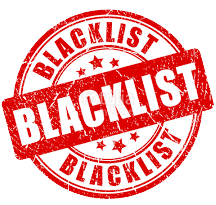Join Our Telegram channel to stay up to date on breaking news coverage
The CENTRE Consortium, a stablecoin issuer behind the USDC stablecoin, has announced that it froze an Ethereum address holding USDC tokens. According to an official statement published on Wednesday, the company — which is jointly-owned by crypto exchange Coinbase and payment processor Circle — explained that the action was taken at the behest of law enforcement agencies. The account that it froze held about $100,000 in USDC, marking the first time that Centre will take such an action.
A Possible Criminal’s Wallet
Several things remain unclear — including the specific law enforcement agency that made the request or the reason for such a decision. The Centre explained in its statement that it had received a court order from an agency with appropriate jurisdiction over it.
The blacklisting action essentially means that the wallet’s owner won’t be able to receive or send USDC tokens with the address.
While the company’s spokesperson couldn’t provide any specifics concerning the blacklisting action, he did hint that the address was recently involved in crypto theft. Investigations into the comment section of a separate message showed that someone with the same wallet address had stolen tokens. The message reads that the person with the wallet address had stolen 10,000 Loopring Coin (worth about $850 at the time)
“I am now giving you a chance to send the 10,000 Loopring Coin back to me. You already know my eth address. If you do not do this, I will report you anywhere with your 2 known addresses,” the message reads.
It’s possible that the blacklisting was done in response to a theft complaint.
Censorship and UDSC’s Sharp Rise in 2020
The action does bring the conversation surrounding censorship to light. Ideally, blocks like these are part of why many crypto users opt for digital assets in the first place. The paradigm holds for Ethereum blockchain funds, with only address owners able to control their funds.
Concerning USDC, the CENTRE Coalition reserves the right to blacklist addresses. The two scenarios where the company could take such action are when it considers the address to be a threat to the network or if it gets a court order from a recognized authority in the United States, a court, or some other body with appropriate jurisdiction.
While the blacklisting process is technically reversible, Circle’s website warns that some blacklisted addresses could be “permanently unrecoverable.” If this address turns out to be linked with theft, it’s highly unlikely that Circle will reverse the blacklisting action.
Despite the possible censorship issues, USDC has finally been able to solidify its place amongst the top-tier stablecoins. The asset, which is less than two years old, broke the $1 billion market cap threshold last week, effectively becoming the second-largest stablecoin after Tether.
However, in the overall market, USDC ranks 18th — while Tether ranks 4th, per data from CoinMarketCap. Announcing the milestone, Centre highlighted several factors that contributed to an uptick in USDC adoption for 2020. Most notable, however, is the progress and growth of the decentralized finance (DeFi) sector.
The company also highlighted that USDC has benefited from the coronavirus-fueled financial crisis and the need for more low-cost asset transfers amongst businesses.
“We expect USDC to continue growing rapidly throughout 2020 and help fulfill Centre Consortium’s mission of establishing an open standard for money on the internet,” the statement adds.
Join Our Telegram channel to stay up to date on breaking news coverage

